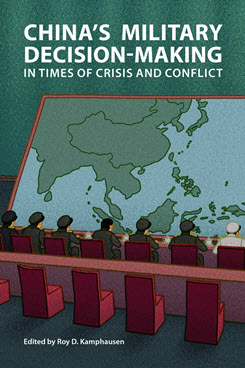Managing a Crisis with China: Crisis Behavior and De-escalation
This chapter examines China’s crisis behavior from a theoretical perspective and presents a typology of its behavior through an examination of ten representative crisis scenarios.
EXECUTIVE SUMMARY
MAIN ARGUMENT
To successfully manage a conflict with China it is essential to understand crisis scenarios as an interplay of complex factors, both purposive and expressive. China demonstrates a strong capacity for expressive (nonrational) behavior. Accordingly, crisis management policies need to balance deterrence with reassurance to be successful. Overreliance on either would lead to suboptimal results: too heavy deterrence would play into the insecurities of China, while pure engagement would likely fail due to the expressive considerations of Chinese policy. Successful policy should deter China from rapid escalation but also seek to address ideational considerations beyond purposive strategic logic.
POLICY IMPLICATIONS
- To successfully counter escalatory behavior, one must distinguish between offensive and defensive behavior. Whereas successfully countering offensive behavior requires deterrence, defensive behavior is exacerbated by deterrence and requires reassurance while signaling resolve.
- There is an expressive component to China’s behavior that predisposes China to escalate in a crisis. Expressive considerations exert different influences at different levels. In a nonunitary actor, lower-level agents may pursue officially unintended escalation motivated by expressive considerations.
- China has shown a general reluctance to respond to a crisis with de-escalation, demonstrating a preference for an initial escalatory response. De-escalation can only be pursued if this escalation is countered, given that China will seek to use it as a coercive tool.
- There is a strong expressive component to China’s behavior that can make it difficult to engage with the country or counter its behavior based on purely rational political calculations. Ideational factors have to be incorporated into conflict management to successfully engage China.
Balazs Szanto is a Lecturer in the Faculty of Political Science at Chulalongkorn University.



 Assessing U.S.-China Deterrence Dynamics and Crisis Management
Assessing U.S.-China Deterrence Dynamics and Crisis Management
